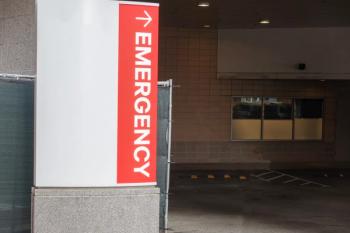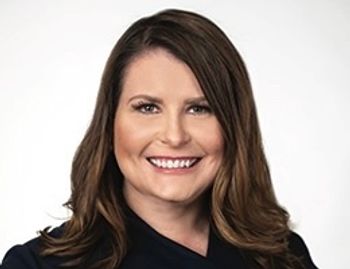
Conduit Health Partners eyes success with ‘nurse-driven’ approach

The company provides virtual triage services, patient transfer services, remote patient monitoring and more. Dominique Wells, the COO, talks with Chief Healthcare Executive about Conduit’s growth.
Dominique Wells says she’s learned the value of trying something new.
Wells is the chief operating officer of Conduit Health Partners, which offers a host of remote healthcare services. Founded by Bon Secours Mercy Health in 2018, Conduit offers triage “nurse-first” services virtually, patient transfers, and remote patient monitoring.
Wells talked about the lessons of starting new ventures, and about her growing company, in an interview with Chief Healthcare Executive® at the ViVE Conference.
“One of Conduit’s philosophies is, you can't sit around a table for months and years, trying to figure it out,” Wells says. “You just have to jump in.”
It’s a lesson that she thinks applies to other health systems that are looking to expand care options outside the four walls of the hospital, including remote patient monitoring and
“That's what we learned through the pandemic is that we just, we just had to quickly do things,” Wells says. “We didn't know if they were going to work or not. Sometimes they did, sometimes they didn't. And we adapted to that.”
(See part of our conversation with Dominique Wells at ViVE. The story continues below.)
‘A collaborative partner'
So far, Conduit’s seeing success in its approach. Conduit employs 180 nurses in 48 states, and has gained growing interest from health systems, payers and employers who are looking to offer 24/7 access to care.
“We are nurse-driven and nurse-led,” Wells says.
Some providers and employers are using Conduit for virtual visits with patients or employees to determine what level of care is needed for an injury or illness. Other providers are turning to Conduit for remote patient monitoring services, including hospital-at-home service. To date, Conduit has worked with 58 hospitals and managed 9 million calls.
“We come to the table as a collaborative partner,” Wells says. “We're not there to just implement or provide a service for them. We truly meet with them on a monthly basis to review the data, to understand their goals, to understand how we can create goals on our own to help them.”
Since Conduit is offering services such as virtual triage and remote patient monitoring, nurses are working remotely, Wells says.
When asked what nurses appreciate about working with the company, Wells says, “I think most of them would say that they like working from home, first and foremost, being out of the craziness that's happening within the hospital setting right now, and still being feeling valued in their role and being able to provide that type of care.”
Conduit requires at least two years of acute care experience from its nurses, Wells says. The company has attracted some veteran nurses who still enjoy nursing but find 12-hour hospital shifts daunting. The company has also drawn some nurses who have started having children and are looking to work from home with more flexible schedules.
Nurses who join Conduit must be comfortable with working at a fast pace.
“It's high tech, it's high intensity, and so it's not for everyone,” Wells says. “It's not for the weak of heart, that's for sure, just because of the rapid pace of the work that they have to do and the critical thinking that has to be done to pivot.”
Referencing some of the company’s work, such as patient transfer services, she says, “We're still managing patients who are severely critical that need to move from one location to another in real time as quickly as possible.”
Moving outside the hospital
Wells brims with optimism about the company’s prospects.
When asked about Conduit’s goals, she says, “We'd love to double our company in the next couple of years for sure.”
Wells says she’s not just looking for such growth in revenue, but also in reaching more patients.
More health systems are looking to deliver care to patients outside the hospital, and Wells sees that as another development that bodes well for Conduit.
She says hospitals and health systems need to be looking at ways to care for more patients remotely and at home, since that’s what consumers are seeking.
“I'd say it's a necessity,” Wells says. “I think we have to at this point in time. I think about my kids, and they don't want to have to go to a physician's office. They want to be able to do things electronically and via video. That's what they grew up with.”
“I would say that health systems, they have to have to figure out how to make that happen, to be able to meet the range of patient care that they need to deliver,” she adds.
And that’s where Wells says hospitals can’t be too deliberative as they develop plans to deliver care in new ways, whether it’s remote patient monitoring or home hospital services.
“What the pandemic taught us is that we can't continue to sit around and do nothing, or take too long to make or create solutions,” Wells says. “I would say dive in, keeping in mind the rules and regulations that we have to follow. But the only way we're going to learn is to just get in there and try to do some things, and make it happen.”






















































































